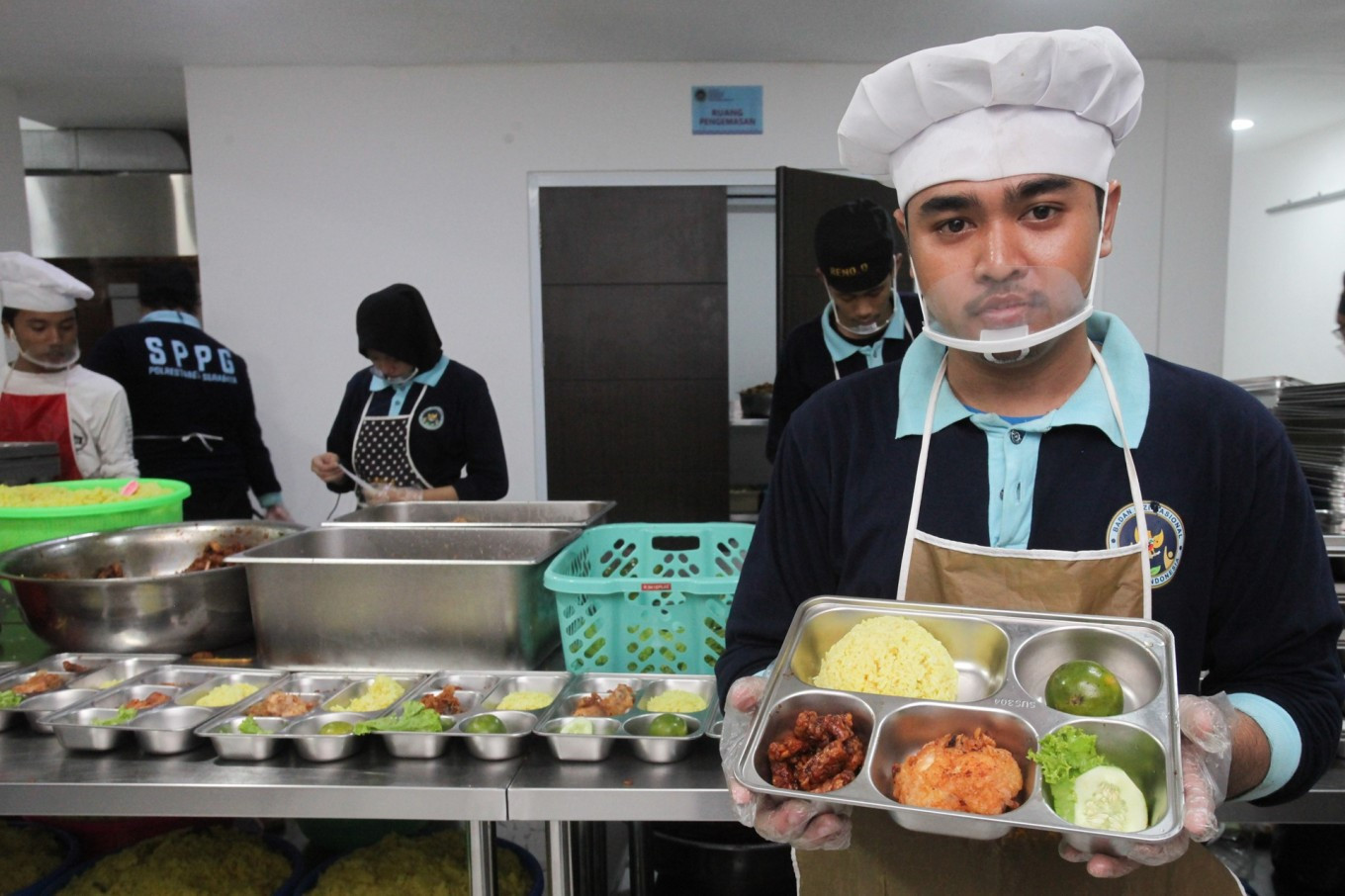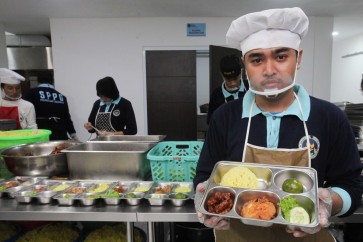Popular Reads
Top Results
Can't find what you're looking for?
View all search resultsPopular Reads
Top Results
Can't find what you're looking for?
View all search resultsAnalysis: Free meal gamble: Can governance save Prabowo's flagship program?
Change text size
Gift Premium Articles
to Anyone
P
resident Prabowo Subianto's flagship free nutritious meal program has hit a critical juncture. Launched with the ambition of feeding millions and cementing his populist image, the program is now marred by reports of food poisoning, poor governance and slow budget absorption. In response, Prabowo has formed a high-level coordinating team to rescue the initiative before it collapses under its own weight.
The new team is designed to tighten oversight and restore public confidence after a string of incidents, including more than 8,000 reported food poisoning cases and allegations of mismanagement in the field. Without swift reform, the government risks missing its ambitious target of reaching 82.9 million beneficiaries next year, despite allocating a massive Rp 268 trillion (US$16.06 billion) in the 2026 budget.
The coordinating team is chaired by Coordinating Food Minister Zulkifli “Zulhas” Hasan and includes representatives from 17 ministries and agencies. Yet, the daily operations will be led by Nanik S. Deang, one of Prabowo's closest confidants, who serves as executive director. Nanik is also deputy chair of the National Nutrition Agency (BGN), the main implementing body for the free meals program.
A former journalist and longtime member of Prabowo's campaign team, Nanik has no formal background in nutrition or food security. Her rapid rise from serving as deputy head of the Poverty Eradication Agency and independent commissioner at Pertamina to her current position underscores how political loyalty continues to shape key appointments in Prabowo's administration.
Under the new structure, the coordinating team will oversee the synchronization, monitoring and evaluation of 7,477 nutrition food supply centers (SPPG) operating across 38 provinces and 509 regencies. These centers form the backbone of the program's food logistics system, linking local farmers and food suppliers to schools and communities.
Prabowo recently touted the program's progress, claiming the government had distributed 1.4 billion meal portions to 36.2 million recipients. He downplayed the food poisoning reports, noting that the incidents represented "only 0.00017 percent" of total distributions. Critics, however, quickly pushed back. Reducing a public health issue to fractions, they argued, trivializes what should be treated as a serious failure of oversight. Each sick child reflects a breakdown in quality control and accountability. The creation of the coordinating team may be an acknowledgment of those concerns.
The coordination team lacks representatives from the military and the National Police. This stands out given Prabowo's reliance on security institutions to execute many of his policies, including the free meals program. Many SPPGs are owned by military and police-linked entities, raising long-standing suspicions that the program has doubled as a tool for distributing political and financial rewards to different factions.


















